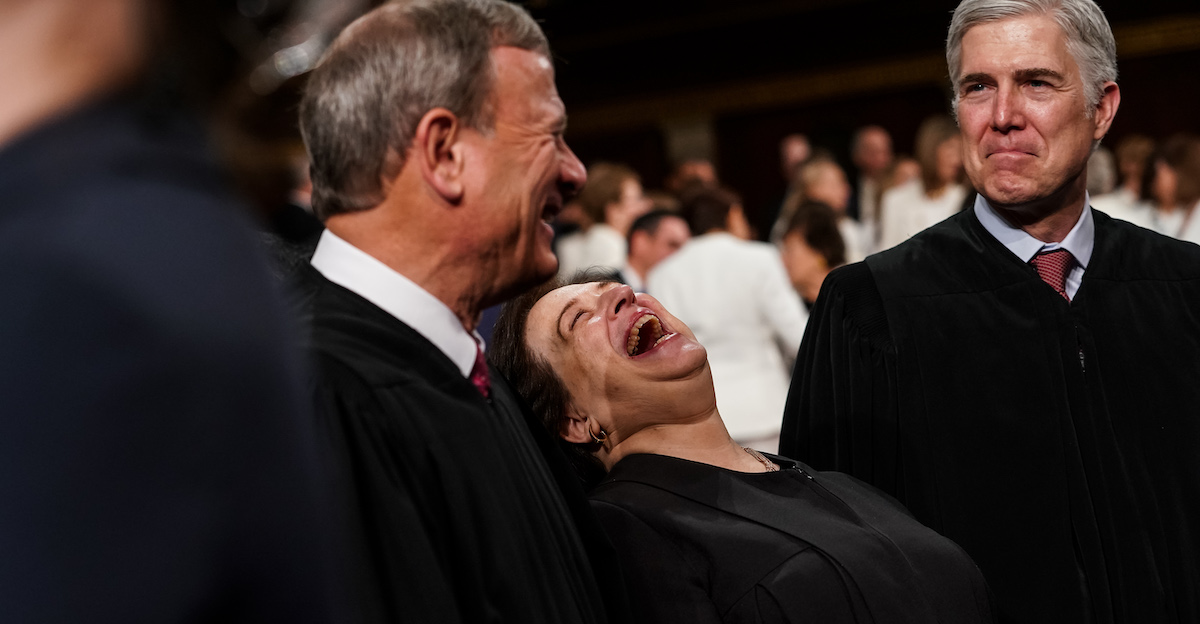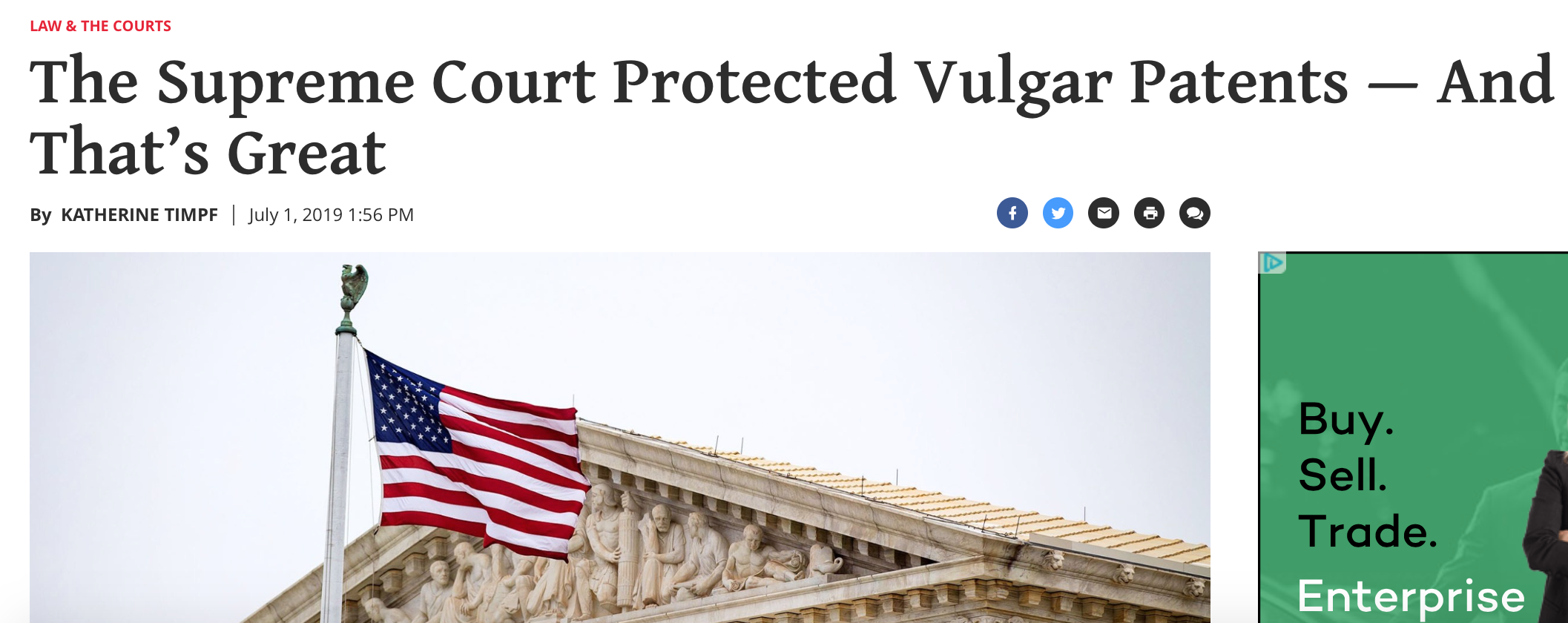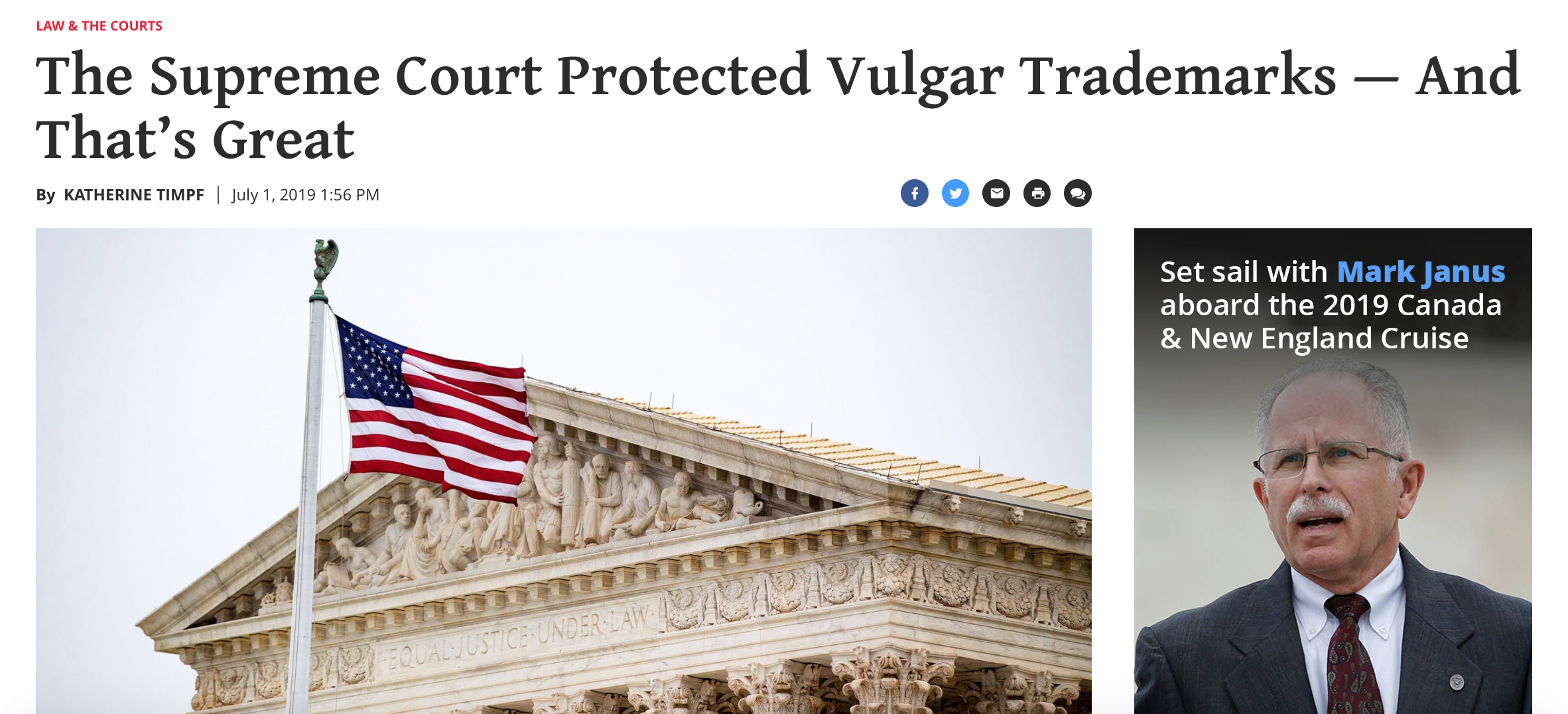
National Review on Monday decided to praise last week’s Supreme Court decision in Iancu v. Brunetti, which notably held that designer Erik Brunetti had a First Amendment right to trademark his “FUCT” clothing line. While it is not hard to see why this development garnered praise, the headline was off the mark; Legal Twitter wasted no time pointing this out.
RELATED: ‘FUCT’ Wins in Supreme Court as Justices Strike Down Ban on ‘Immoral’ Trademarks
First, the NRO headline: “The Supreme Court Protected Vulgar Patents — And That’s Great.” To Kat Timpf‘s credit, nowhere in the piece itself did she claim that this is what the Supreme Court did (was this an editor fail?).

The lede was clear on what actually happened: “On Monday, the Supreme Court ruled that a law banning the registration of ‘immoral or scandalous’ trademark names violated the First Amendment — and that’s a huge win for free speech.” In the article, the only time the word patent appeared was when U.S. Patent and Trademark Office came up.
Lawyers on Twitter were not about to ignore the headline, however.
I am a patent attorney. I can assure you the Supreme Court did no such thing.
— Internet Law Review (@km03496) July 1, 2019
Nope. This was a trademark case, not a patent case.
— Sarah Burstein (@design_law) July 1, 2019
— Dan Huddleston (@DanHuddTweets) July 1, 2019
Stop trolling the poor IP lawyers!
(What would a “vulgar patent” even look like? Maybe I don’t want to know?) https://t.co/zuhR6bhla8
— Rick Sanders (@RickSandersLaw) July 1, 2019
Hey National Review, the words “Patent” & “Trademark” aren’t interchangeable. Let’s try to get it right https://t.co/EwQwYQtU3I
— Larry Zerner (@Zernerlaw) July 1, 2019
For what it’s worth, the Washington Examiner ran a similar headline days ago, but there did not immediately appear to be similar backlash.
Also, for what it’s worth, there was a joke or two about there actually being “vulgar patents.”
Consider that, in the SCOTUS opinions on this case, the word “patent” showed up in search 12 times (each time that was because the U.S. Patent and Trademark Office’s name was invoked). Trademark, on the other hand, showed up 89 times and was used mostly on its own, indicating what this case was about.
RELATED: SCOTUS Refused to Say ‘FUCT,’ But Ruth Bader Ginsburg Didn’t Disappoint
The difference between trademarks and patents, briefly explained:
A trademark protects a symbol, name, word, logo, or design used to represent the manufacturer of goods. A patent gives property rights to an inventor for a new product, preventing others from making an identical product. Many companies use both to protect intellectual property, although the two are not interchangeable.
The headline has since been changed, so it seems Legal Twitter’s complaint was heard.

[Image via Doug Mills-Pool/Getty Images]